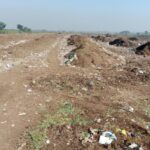Industrialization presents both challenges and opportunities for societies. On one hand, rapid industrial growth can strain resources and lead to environmental degradation. However, it also creates jobs, boosts economic growth, and improves living standards. To harness these opportunities while mitigating the challenges, governments must implement sustainable policies. This includes investing in clean technologies, promoting renewable energy sources, and ensuring proper waste management. Additionally, education and vocational training play a crucial role in equipping the workforce with the skills needed in a rapidly evolving industrial landscape. By carefully balancing economic development with environmental sustainability, industrialization can pave the way for a more prosperous and sustainable future.
Table of Contents
- Benefits of industrialization
- Economic growth and job creation
- Environmental impacts of industrialization
- Sustainable industrialization and green initiatives.
- Technological advancements and automation
(Harnessing the Fourth Industrial Revolution: Challenges and Opportunities)
Industrialization has brought about numerous challenges and opportunities for societies across the globe. While it has fueled economic growth and technological advancements, it has also raised concerns about its impact on the environment and human well-being.
One major challenge of industrialization is pollution. Factories and manufacturing plants release harmful pollutants into the air, water, and soil, leading to environmental degradation and health risks. However, this challenge also presents an opportunity for innovation and the development of cleaner technologies.
Another challenge is the displacement of traditional industries and jobs. As new machinery and automation take over, manual labor becomes less relevant, leading to unemployment and social unrest. However, this can also be seen as an opportunity to reskill and retrain workers for emerging industries and the digital economy.
Industrialization also brings demographic shifts and urbanization. As people flock to cities seeking better job opportunities, a strain is put on infrastructure, housing, and public services. Yet, this urbanization presents an opportunity for cities to redesign and become more sustainable, creating smart cities that are efficient and eco-friendly.
Furthermore, industrialization has led to a widening wealth gap. The concentration of wealth in the hands of a few can exacerbate societal inequalities, leading to social unrest. However, it also presents an opportunity for governments and organizations to address these disparities through inclusive policies and wealth distribution mechanisms.
In conclusion, industrialization presents both challenges and opportunities. While it may lead to environmental degradation, job displacement, and social inequalities, it also provides avenues for innovation, sustainable development, and inclusive growth. It is crucial for governments, industries, and individuals to work together to mitigate the negative impacts of industrialization and capitalize on its potential for positive change.
Benefits of industrialization
Industrialization has brought numerous benefits to societies worldwide. One of the key advantages is economic growth, as industrialization leads to increased production and improved efficiency. This translates into higher incomes for both individuals and governments.
Furthermore, industrialization is a catalyst for job creation. As new industries emerge, more employment opportunities become available. This helps to alleviate poverty and reduce unemployment rates, ultimately improving the standard of living for many people.
In addition to economic benefits, industrialization also leads to technological advancements. The need for innovation and improvement drives research and development, resulting in the creation of new technologies. These technological advancements have far-reaching impacts, from improving healthcare systems to enhancing communication networks.
Moreover, industrialization contributes to urbanization. As industries develop and grow, people tend to migrate from rural areas to cities in search of better job prospects. This influx of people necessitates the development of infrastructure, such as housing, transportation, and utilities, leading to urban growth.
Industrialization also leads to increased trade and globalization. As industries expand, they often require resources that are not readily available locally. This drives international trade and fosters economic cooperation between nations. Additionally, globalization allows for the transfer of knowledge and ideas, promoting cultural exchange and diversity.
Another benefit of industrialization is improved standards of living. Through industrialization, access to basic necessities such as food, clothing, and shelter has become more readily available and affordable. Industrialization has also played a significant role in advancements in healthcare and education, leading to better health outcomes and increased literacy rates.
Environmental benefits can also be derived from industrialization. With advancements in technology, industries are able to adopt more sustainable practices, reducing waste and pollution. Industrialization has also fueled the development of renewable energy sources, contributing to the global effort to combat climate change.
Lastly, industrialization creates a multiplier effect, stimulating economic growth in other sectors. As industries expand, demand for goods and services increases, benefiting not only the industrial sector but also sectors such as retail, finance, and hospitality.
In conclusion, the benefits of industrialization are extensive. From economic growth and job creation to technological advancements and improved standards of living, industrialization has positively impacted societies worldwide. However, it is important to strike a balance between the benefits and potential drawbacks of industrialization, such as environmental concerns and social inequalities, to ensure sustainable and inclusive development.
Economic growth and job creation
Economic growth and job creation are crucial elements in the process of industrialization, presenting both challenges and opportunities. As industries develop and expand, they contribute significantly to overall economic growth by increasing productivity, generating income, and stimulating investment.
One of the main challenges in achieving economic growth through industrialization is the need for a skilled and educated workforce. With the advancement of technology and automation, industries require workers who possess specialized skills and knowledge. This calls for investment in education and training programs to develop a workforce that can meet the demands of modern industries. By providing relevant education and training opportunities, governments and organizations can empower individuals to participate fully in the industrialization process and access better job opportunities.
Furthermore, infrastructure development plays a crucial role in attracting investments and fostering economic growth. Modern industries rely on efficient transportation systems, reliable power supply, and advanced communication networks. Investments in infrastructure not only promote industrial development but also create job opportunities in construction and related industries. Therefore, governments should prioritize infrastructure development to support industrialization initiatives and stimulate economic growth.
While industrialization presents challenges, it also offers ample opportunities for job creation. When new industries emerge, they require manpower to operate and support their activities. This leads to the creation of direct employment opportunities in various sectors, such as manufacturing, logistics, and services. Additionally, industrialization has a ripple effect on the economy, creating indirect job opportunities in related industries like retail, hospitality, and healthcare. By promoting industrialization, governments can create a multiplier effect that generates employment opportunities across multiple sectors.
Industrialization also promotes entrepreneurship and innovation, leading to the creation of new businesses and job opportunities. As industries expand, they create demand for goods and services, encouraging entrepreneurs to start their businesses to cater to these needs. This entrepreneurial activity leads to job creation and economic growth, as new businesses contribute to the overall development of the economy.
In conclusion, economic growth and job creation are fundamental aspects of industrialization. While achieving these goals may present challenges such as the need for a skilled workforce and infrastructure development, they also offer tremendous opportunities for employment and entrepreneurship. By addressing these challenges and capitalizing on the opportunities, countries can harness the benefits of industrialization, promoting sustainable economic growth, and improving the lives of their citizens.
Environmental impacts of industrialization
Industrialization has brought about significant changes in our society, presenting both challenges and opportunities. However, one area that cannot be overlooked is the environmental impact of industrialization. As industries grow and expand, they tend to exert immense pressure on the environment, leading to various consequences.
One of the major consequences of industrialization is air pollution. Factories and manufacturing plants release harmful emissions into the air, including greenhouse gases and pollutants, such as sulfur dioxide and nitrogen oxide. These emissions contribute to climate change, global warming, and respiratory diseases in humans and animals.
Water pollution is another significant issue caused by industrialization. Industrial processes often involve the use of chemicals, which are eventually discharged into water bodies, contaminating them. This contamination affects aquatic life and can also harm those who rely on these water sources for drinking or irrigation.
Moreover, industrialization leads to deforestation as forests are cleared to make way for factories and to obtain resources for production. This loss of forest cover disrupts ecosystems, resulting in the loss of biodiversity and increased vulnerability to soil erosion and natural disasters.
In addition to these direct impacts on the environment, industrialization also contributes to the generation of large amounts of waste. Many industries produce non-biodegradable waste, such as plastics and toxic chemicals, which end up in landfills or are improperly disposed of, further polluting the environment.
Despite these challenges, there are opportunities for mitigating the environmental impacts of industrialization. Technological advancements offer the possibility of developing cleaner and more sustainable industrial processes. For instance, the implementation of renewable energy sources, such as solar and wind, can help reduce greenhouse gas emissions.
Furthermore, governments and regulatory bodies can play a crucial role in ensuring that industries adhere to strict environmental standards. Implementing policies and regulations that promote responsible waste management, emission control, and resource conservation can help minimize the negative environmental impacts of industrialization.
Moreover, there is a growing trend towards adopting green practices and sustainable development in industries. Many businesses are recognizing the importance of reducing their ecological footprint and are implementing measures to minimize waste generation, improve energy efficiency, and promote eco-friendly production processes.
In conclusion, the environmental impacts of industrialization are significant and cannot be ignored. They include air and water pollution, deforestation, and waste generation. However, with the right approach, industrialization can also present opportunities for implementing sustainable practices and minimizing these negative impacts. By embracing technological advancements and adopting responsible environmental policies, we can strike a balance between industrial growth and the protection of our environment.
Sustainable industrialization and green initiatives.
Sustainable industrialization and green initiatives are vital in addressing the challenges posed by industrialization. As industries continue to grow and expand, it is increasingly important to prioritize environmental sustainability and explore initiatives that reduce the negative impact on our planet.
One of the key challenges faced in industrialization is pollution. Industries often release harmful emissions, contributing to air and water pollution. Sustainable industrialization seeks to mitigate these impacts by adopting cleaner technologies and processes, such as implementing stringent emissions standards and investing in renewable energy sources.
Another challenge is the depletion of natural resources. Traditional industrial practices often rely heavily on finite resources, leading to their rapid depletion. Green initiatives encourage the use of alternative materials and renewable resources in production processes, helping to reduce resource scarcity and preserve the environment for future generations.
Sustainable industrialization also addresses the issue of waste management. Industries generate significant amounts of waste, which can cause environmental harm if not properly managed. Green initiatives advocate for the implementation of waste reduction, recycling, and proper disposal practices, promoting a circular economy where resources are reused rather than wasted.
Moreover, sustainable industrialization fosters the development of eco-friendly products and services. This includes the manufacturing of energy-efficient appliances, eco-friendly packaging, and sustainable transportation options. Green initiatives encourage consumers to make environmentally conscious choices, thereby creating a demand for sustainable products and driving market transformation.
While challenges may arise during the transition towards sustainable industrialization, there are numerous opportunities to be embraced. This includes the development of new green technologies and innovation. Investments in research and development can lead to the discovery of novel solutions that enhance efficiency, reduce emissions, and minimize the environmental footprint of industries.
Additionally, sustainable industrialization creates new job opportunities. As green initiatives gain momentum, there is a growing demand for skilled professionals in fields such as renewable energy, waste management, and sustainable design. This not only promotes economic growth but also improves the overall quality of life for communities.
In conclusion, sustainable industrialization and green initiatives are essential for overcoming the challenges posed by industrialization. By adopting eco-friendly practices, industries can minimize their impact on the environment, reduce resource consumption, and promote economic growth. Embracing sustainability offers significant opportunities for innovation, job creation, and a healthier planet for future generations.
Technological advancements and automation
Technological advancements and automation have revolutionized the industrial landscape, presenting both challenges and opportunities. With the integration of cutting-edge technologies, industries have witnessed a surge in productivity, efficiency, and profitability. Automated machines and artificial intelligence have streamlined various processes, eliminating human error and reducing labor costs. These advancements have not only transformed the manufacturing sector but have also extended their influence to other industries such as healthcare, transportation, and agriculture.
One of the significant advantages of technological advancements and automation is the improved safety standards. Robots and machines are now able to perform hazardous tasks, minimizing the risk of accidents and injuries for workers. This has not only enhanced workplace safety but has also provided a more productive and motivating work environment.
Moreover, automation has resulted in increased precision and accuracy. With the introduction of automated tools and machinery, industries can now produce goods with higher consistency and quality. This not only enhances customer satisfaction but also opens up new markets and opportunities for growth.
However, the rise of automation also presents challenges, particularly in terms of unemployment. As machines take over manual labor tasks, there is a growing concern about job displacement. The need for human intervention decreases significantly, leading to a potential loss of livelihood for many workers. It calls for a proactive approach in re-skilling and up-skilling the workforce to adapt to the changing demands of the industry.
Additionally, the integration of complex technologies and automation requires significant investments. Upgrading existing infrastructure to accommodate these advancements can be costly, especially for smaller businesses. This poses financial challenges that need to be addressed to ensure inclusive and sustainable industrial development.
Nevertheless, the opportunities presented by technological advancements in automation should not be overlooked. It is crucial to embrace these changes and harness their potential. This can be done by fostering collaboration between technology developers, industries, and policymakers to create a regulatory framework that supports innovation while also safeguarding workers’ rights and well-being.
In conclusion, technological advancements and automation have brought remarkable changes to the industrial sector. While they offer immense opportunities for growth, they also present challenges that need to be addressed effectively. By capitalizing on the advantages and mitigating the risks, societies can navigate the industrialization landscape successfully, ensuring sustainable development and inclusive growth for all. It is through a balanced approach that we can create a future where humans and technology coexist harmoniously, driving progress and prosperity.
External Links
- Democratizing ownership and participation in the 4th Industrial …
- Natura Non Facit Saltus: Challenges and Opportunities for Digital …
- The Fourth Industrial Revolution: Industry 4.0 Challenges and …
- Why does Africa’s industrialization matter? Challenges and …
- Lithium extraction and industrialization: opportunities and …













